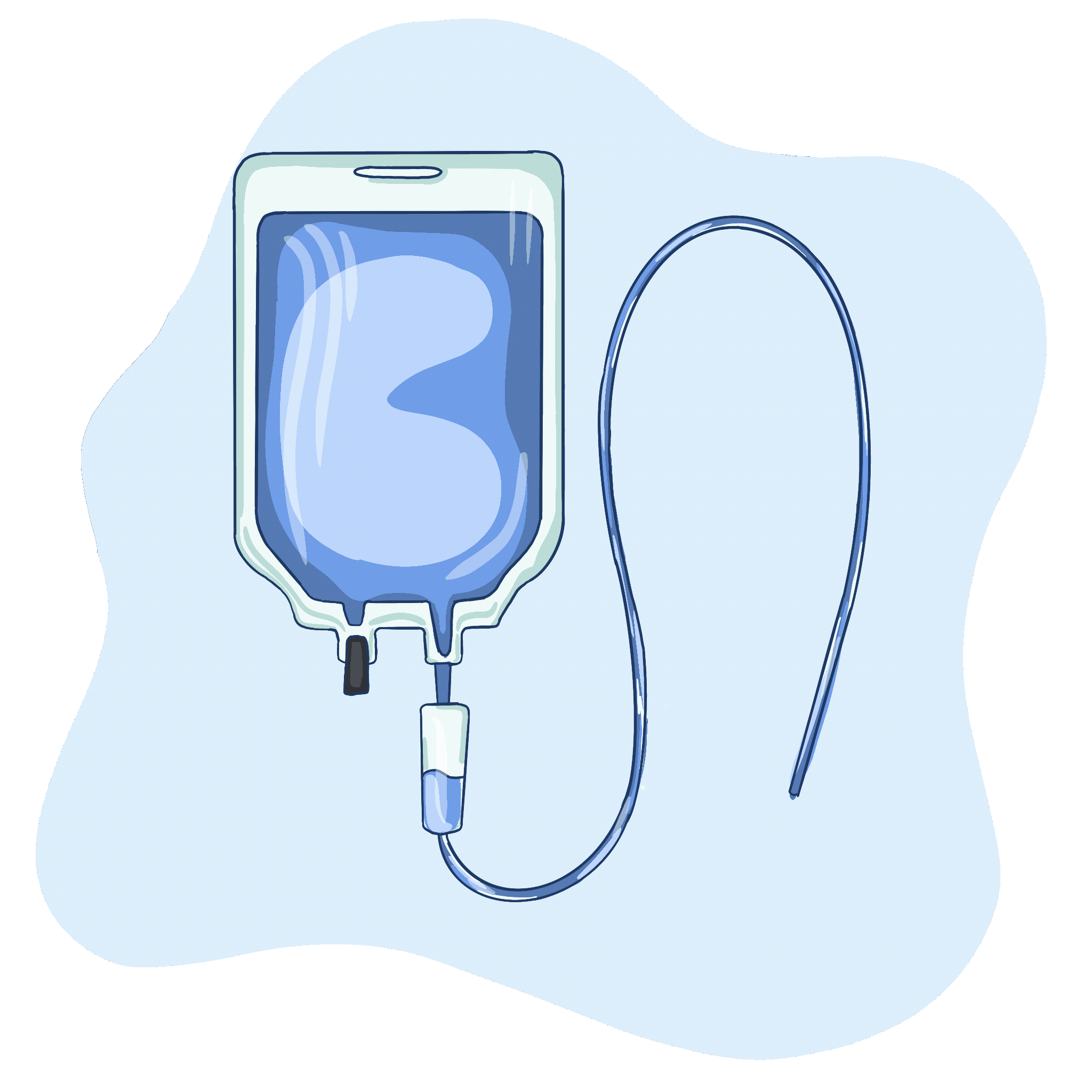
Most people look forward to the fun times and fond memories after a night of drinking. However, there’s also the dreaded anticipation of how you’ll feel in the morning– “Will I wake up with a hangover?” For those that do, the day ahead is nothing shy of miserable. While you can’t go back in time to prevent yourself from ordering another round, you can learn more about what causes a hangover, how to alleviate symptoms, and how IV therapy can help– that way you’re ready for your wild night of fun.
What is a Hangover?
A hangover is the experience of various adverse physiological and psychological effects following the consumption of alcohol, such as wine, beer, or distilled spirits. Hangovers can last for several hours or for more than 24 hours. The severity of a hangover depends on how much alcohol was consumed, how quickly it was consumed, the person’s age, weight, and general health, and whether any other drugs were also consumed.
What Causes a Hangover?
Most people attribute the symptoms of a hangover to the alcohol they drank the night before. However, alcohol is not the only culprit. In fact, there are many factors that can contribute to a hangover, including dehydration, electrolyte imbalance, sleep deprivation, and poor nutrition.
- Dehydration is one of the most common causes of a hangover. Alcohol is a diuretic, which means it helps your body get rid of water. When you drink alcohol, your body gets rid of more water than it takes in. This can lead to dehydration, which can cause a number of symptoms, including a headache, fatigue, and dry mouth. Alcohol also irritates the lining of your stomach, which can lead to nausea and vomiting.
- Sleep deprivation is another common cause of a hangover. When you drink alcohol, it disrupts your sleep cycle and prevents you from getting a full night’s rest. This can leave you feeling tired and groggy the next day.
- Poor nutrition is another common cause of a hangover. Alcohol can inhibit your body’s ability to absorb nutrients, and it can also deplete your body of important vitamins and minerals. This can lead to fatigue, headaches, and other hangover symptoms.

How to Prevent a Hangover
Despite popular belief, there is no one “cure” for a hangover, nor is there a guaranteed way to prevent one. However, there are several things you can do to ease the symptoms.
- Eat before drinking: Eating a meal before consuming alcohol can help slow down the absorption of alcohol into your system. This will help you feel less intoxicated, and may also help reduce the severity of your hangover.
- Avoid dehydration: Drinking plenty of water or non-alcoholic beverages while you are drinking alcohol can help prevent dehydration. Dehydration can contribute to the symptoms of a hangover, so it is important to stay hydrated.
- Limit your alcohol consumption: One of the best ways to prevent a hangover is to limit your alcohol consumption. If you do drink, pace yourself and have one non-alcoholic beverage in between alcoholic beverages.
- Avoid drinks with congeners: Congeners are chemicals that are found in some alcoholic beverages and can contribute to the severity of a hangover. Drinks that contain high levels of congeners include dark-colored liquors, such as bourbon and red wine.
- Get enough sleep: Alcohol can disrupt your sleep, so it is important to get a good night’s sleep after drinking. This will help your body recover from the effects of alcohol and reduce the severity of your hangover.
How IV Therapy Helps with Hangovers
One of the most popular hangover remedies is IV therapy. IV therapy can rehydrate your body and replenish important nutrients and minerals that are lost when you drink alcohol. This can help alleviate some of the symptoms of a hangover, such as fatigue, headaches, and nausea.
The ingredients in Liquid Mobile IV’s Hangover Relief infusion are a blend of vitamins specially paired for their role in both lessening the effects of a hangover before a night out, and help minimize symptoms the day after.

- B Vitamins (B1, B2, B3, B5, B6): These nutrients are notorious for nipping hangover symptoms at the bud. All B vitamins help the body produce energy, and thereby support all the essential functions of our health.
- Magnesium Chloride: This mineral helps improve immunity, boost relaxation, and reduce headaches by maintaining the function of our nerves, cells, bones, muscles and heart. For those with a hangover, it helps regulate systems in our body and promotes recovery.
- Anti-nausea medication: This eases hangover symptoms of nausea and vomiting, and helps you to feel better throughout the day.
- IV infusions also deliver hydration to directly to the bloodstream, and thereby is more readily absorbed than drinking water alone.
If you’re looking for a hangover cure, there is no magic solution. However, following these tips can help you remedy a hangover, or at least make it less severe. And if you do find yourself with a hangover, IV therapy can help you feel better fast.
